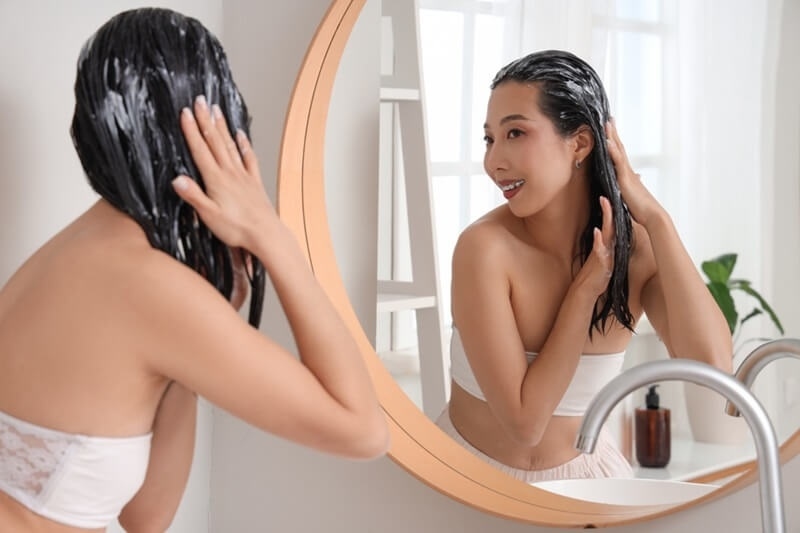
Frizzy, brittle, or dry hair might seem like a never-ending fight—does it have to be? Hair masks claim to do everything from superhydrating to completely restoring hair. So, do hair masks work? The short answer: yes - if you are using the right product for your hair type and the related issue. The highest rated hair masks for damaged hair will provide moisture, replace protein, and repair the cuticle layer from the inside out.
In this complete review, we will share the benefits of hair masks, break down which types work for each hair type, and highlight products that do work. No matter if your hair is weak, you have split ends, or you have frizz, we will help you choose the best deep conditioning treatments and natural repair hair masks available today.
Hair damage comes from heat styling, coloring, exposure to environmental stress, and poor diet/ hair care habits. Damaged hair loses elasticity, feels rough, and breaks easily. When your strands reach this weakened state, regular shampoo and conditioner just aren’t enough.
Hair masks are deep treatments that are designed to penetrate the hair shaft and bring nourishing ingredients such as protein, oils, and moisturizers. They are distinct from everyday conditioners in that they provide more intense repair and specific treatment for problems like:
Optimal hair masks for damaged hair balance moisture and protein to restore balance and strength.

Hair consists of keratin protein. The structure is porous and weakened. Hair masks contain active ingredients in concentrated form to reconstruct and rehydrate the hair.
Some of the most important functions of good hair masks are:
These advantages render deep conditioning treatments fundamental to anyone who uses hot tools, bleaches, or suffers from environmental damage.
Hair masks are not the same. The one that is best suited for you will depend on your specific hair situation.
These masks are filled with humectants such as glycerin, aloe vera, and hyaluronic acid. The oils, argan, coconut, or avocado included, will also provide deep moisture and condition for the hair.
The majority of protein masks contain ingredients like keratin, collagen, and/or hydrolyzed proteins. If blended properly, they can help to reinforce the makeup of your hair and shield against breakage. Just keep in mind not to use too much, since too much protein can lead to your hair stiffening.
Composed of plant-based, chemical-free ingredients like banana, honey, or clay. Natural hair repair masks are perfect for anyone who wants to achieve the shine and strength of their hair without the chemical ingredients.
These typically blend oils with silicones or anti-humidity components to calm the cuticle and keep moisture out.
Both types work towards hair health in their own ways. You might need to try a few before you discover your holy grail.
This is a list of the best hair masks for damaged hair, supported by reviews and ingredients renowned for repair.
Best for chemically damaged hair. This mask fortifies internal bonds and moisturizes.
Loaded with avocado oil and B-vitamins, this clean formula is perfect for all hair types.
Perfect for curly, coarse, or high-porosity hair. Layered with organic shea butter and argan oil.
A nourishing hair mask that deeply conditions without weighing hair down.
Loaded with ceramides and pro-keratin, it's ideal for fragile, split-end-prone hair.
Inexpensive with protein and ceramide. Good for hasty touch-ups.
Quick, cheap, and efficient. With jojoba and sea kelp for extra softness.
Argan oil-based formula that focuses on frizz and dryness.
Silicone-free and color-safe. Strengthens and minimizes breakage.
A natural fix for hair that's dry, curly, or textured.
They all have a special offer to extend, whether it's deep hydration, re-fortifying protein, or frizz control!
When your hair is troubled, once a month is not enough to apply a hair mask. Here is how to incorporate masks into your hair-care routine properly:
Most deep conditioning treatments are effective when done once a week or once every other week, depending on your hair's condition.
One of the most common mistakes is applying the wrong kind of mask for what your hair needs.
Other times, compromised hair requires both. Alternate weekly between moisture and protein-based masks in order to restore balance.
Opt for light masks containing collagen or rice protein that will not weigh your hair down.
You'll get the most benefit from rich, deep conditioning treatments loaded with oils and butters.
Emphasize natural hair repair masks containing emollients and humectants.
Silicone-free and protein-rich masks are ideal to preserve color vibrancy and strength.
Opt for anti-humidity masks containing smoothing agents for enduring control. Excellent choices are hair masks for frizz that contain keratin or argan oil.
Don't feel like spending money on a salon brand? Here are the effective DIY ones:
With fatty acids and antioxidants, it moisturizes and brings shine back.
This is ideal for combating frizz and moisturizing dry hair.
This is a strong treatment full of protein that will thicken and strengthen hair strands naturally.
Consistency is the key. Improvement can be felt after a single usage, but actual recovery from the best hair masks for damaged hair takes:
Yes, hair masks certainly work, and the benefits can be exceptional when used consistently with the right formula for your hair. The best hair masks for damaged hair have the right blend of moisture and protein and will offer benefits in the way of protection from the inside out. If you use high-end salon products, budget-friendly drugstore products or organic hair repair masks, using the right product, along with the right application method, can bring your hair back to life and improve its health, shine, and strength.
This content was created by AI